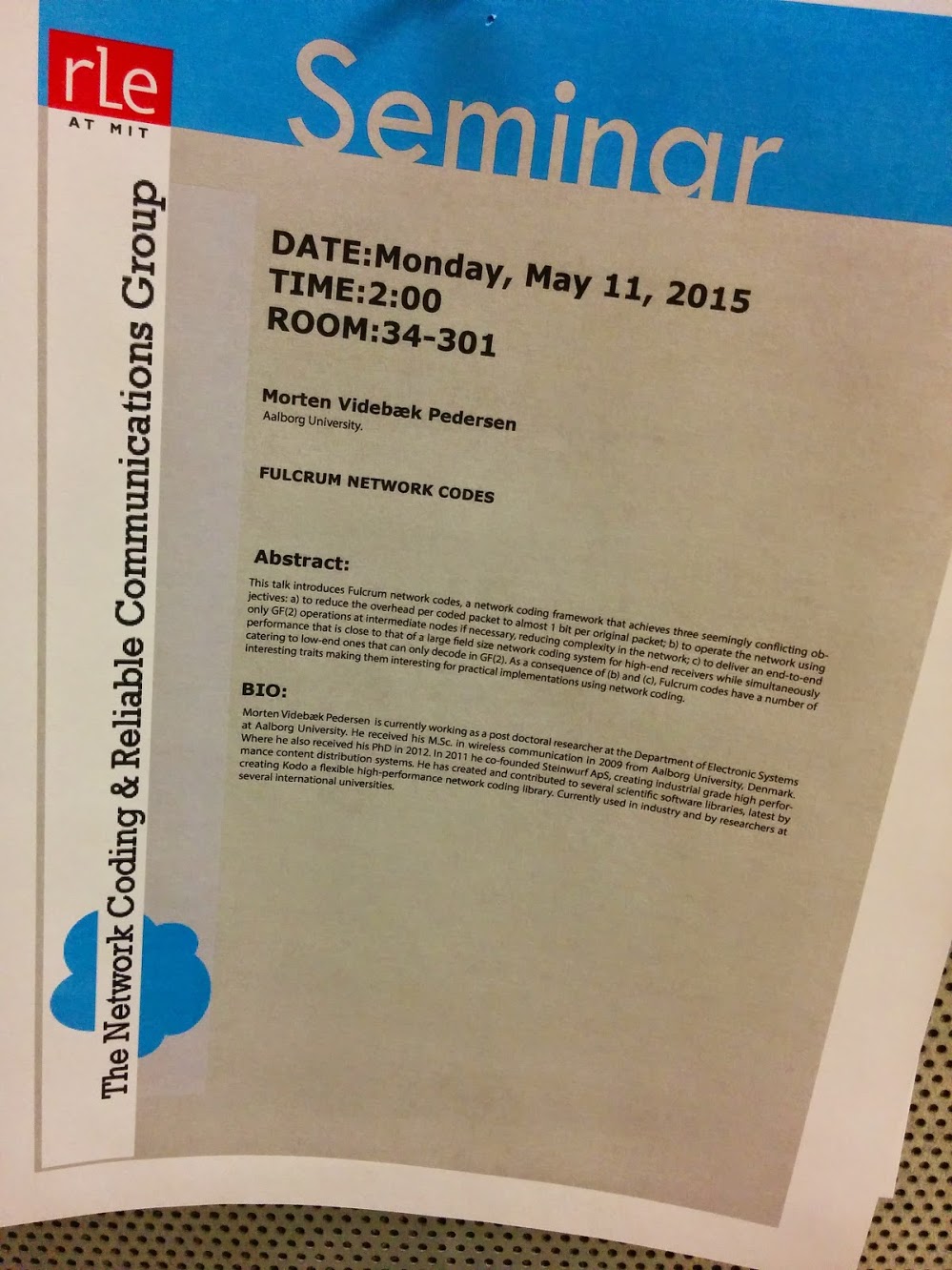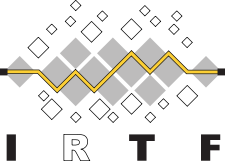This coming Monday (May 11, 2015) at 2:00PM I will be giving at talk at MIT on our work on Fulcrum Network Codes.
Abstract:
This talk introduces Fulcrum network codes, a network coding framework that achieves three seemingly conflicting objectives: a) to reduce the overhead per coded packet to almost 1 bit per original packet; b) to operate the network using only GF(2) operations at intermediate nodes if necessary, reducing complexity in the network; c) to deliver an end-to-end performance that is close to that of a large field size network coding system for high-end receivers while simultaneously catering to low-end ones that can only decode in GF(2). As a consequence of (b) and (c), Fulcrum codes have a number of interesting traits making them interesting for practical implementations using network coding.
See flyer here:


